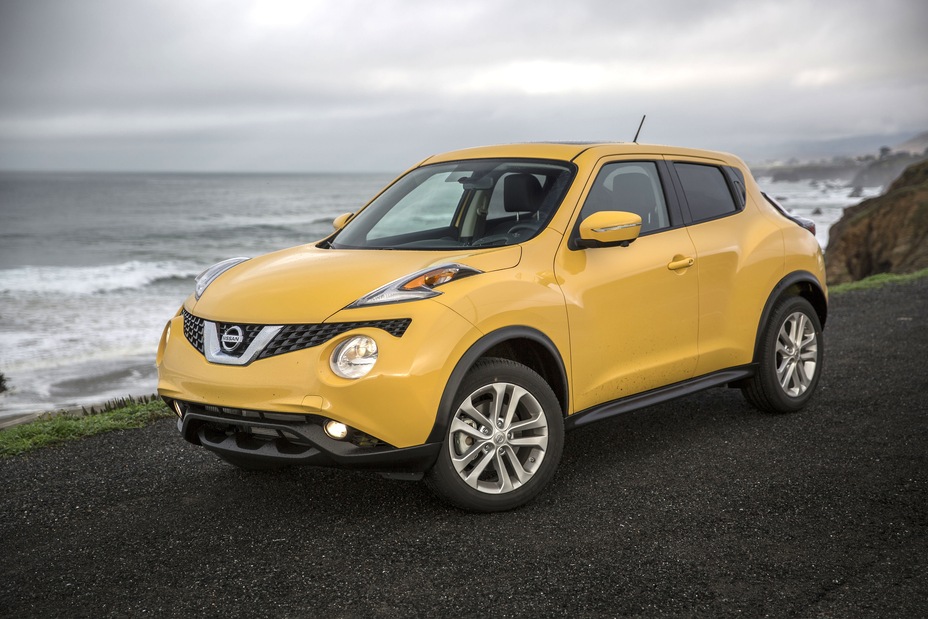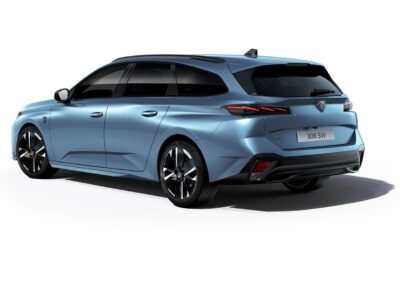
Are Nissan Juke Reliable? The Ultimate Reliability and Maintenance Guide (2025 Edition)

The Nissan Juke has carved out a niche as one of the most distinctive compact crossovers on the road. But beneath that bold styling and playful character, a question remains on the minds of many potential owners — are Nissan Juke reliable?
We’ve analyzed extensive data from owner reports, reliability indexes, repair cost studies, and real-world experiences to uncover the truth. In this comprehensive guide, we’ll explore how the Juke performs over time, what common issues you might face, and whether it’s a dependable investment for the long haul.
- Introduction: Why Reliability Matters
- Nissan Juke Overview
- Reliability Ratings at a Glance
- How the Juke Performs in Reliability Indexes
- Engine and Transmission Reliability
- Electrical and Sensor Issues
- Suspension and Steering Durability
- Interior and Electronics Longevity
- Common Nissan Juke Problems by Model Year
- Average Repair Costs
- Maintenance Schedule for Optimal Reliability
- How the Juke Compares to Rivals
- Why Extended Warranties Are Worth Considering
- Expert Tips to Keep Your Juke Reliable
- Final Verdict: So, Are Nissan Juke Reliable?
- FAQs
Introduction: Why Reliability Matters
When you invest in a car like the Nissan Juke, you’re not just buying design or performance — you’re buying peace of mind. Reliability affects everything from repair bills and resale value to daily driving confidence. A reliable car is one that starts every morning, handles wear gracefully, and doesn’t surprise you with a hefty mechanic bill.
Nissan Juke Overview
Introduced in 2010, the Nissan Juke quickly became a standout thanks to its bold styling, compact size, and fun-to-drive personality. It blends SUV practicality with hatchback agility, appealing to both urban drivers and adventurers alike.
Over the years, Nissan has refined the Juke’s engines, interiors, and tech — from the original 1.6-litre petrol and diesel options to the modern 1.0-litre turbocharged DIG-T and hybrid powertrains found in the latest models.
Reliability Ratings at a Glance
| Source | Reliability Score (1–10) | Verdict |
|---|---|---|
| What Car? Reliability Survey | 7/10 | Above Average |
| MotorEasy Reliability Index | 8/10 | Strong Performer |
| ReliabilityIndex.com | 74 (Lower = Better) | Excellent |
| Driver Power Owner Satisfaction | 82% | Highly Rated by Owners |
Across multiple studies, the Juke consistently scores above average for reliability, particularly for models produced from 2016 onward, where Nissan improved engine and electrical systems.
How the Juke Performs in Reliability Indexes
The MotorEasy Reliability Index places the Nissan Juke among the top performers in its segment. Repair frequency and cost are both moderate, with most fixes falling under £300–£500 on average.
Owners praise the Juke for its dependable engines, robust build quality, and low incidence of major failures. Regular servicing dramatically reduces risk — those who adhere to maintenance schedules report fewer issues across the board.
Engine and Transmission Reliability
The Juke’s powertrains are generally solid, but some engines are more reliable than others.
1.0 DIG-T and 1.6 Petrol Engines
- Smooth, efficient, and long-lasting with proper care.
- Known for occasional turbo and ignition coil wear.
- Regular oil changes (every 10,000 miles) are crucial to prevent sludge buildup.
Diesel Engines (1.5 dCi)
- Reliable under long-distance use but prone to EGR valve and DPF clogging in city driving.
- Using high-quality fuel and performing occasional motorway runs help maintain health.
CVT Transmission
- Early CVT (Continuously Variable Transmission) units (2010–2014) were less dependable, with occasional shuddering or slipping.
- Later models improved dramatically with updated software and reinforced components.
Electrical and Sensor Issues
Electrical faults represent one of the more common complaints among early Juke owners, though they are rarely severe.
Common issues include:
You may be interested in reading Best Nissan Juke Alternatives: 12 Compact SUVs Worth Considering in 2025
Best Nissan Juke Alternatives: 12 Compact SUVs Worth Considering in 2025- Battery drain due to infotainment or light control module errors.
- ABS or traction control lights triggered by faulty wheel sensors.
- TPMS (Tyre Pressure Monitoring System) false readings.
Most electrical repairs cost under £250, and many can be fixed through software updates or sensor replacements.
Suspension and Steering Durability
The Juke’s suspension setup handles urban roads well but can wear faster on rough surfaces.
Typical wear points include:
- Front wishbones and bushes after 50,000–70,000 miles.
- Shock absorbers that may leak or lose damping after extended use.
However, the steering system remains precise and reliable, with few reported failures even at high mileage.
Interior and Electronics Longevity
One area where the Juke shines is cabin durability. Despite its playful design, materials hold up well over time.
- Upholstery and plastics resist wear impressively.
- Infotainment systems (post-2016) are stable and easy to update.
- Climate control and navigation rarely malfunction.
The interior reliability contributes significantly to high owner satisfaction scores.
Common Nissan Juke Problems by Model Year
| Model Year | Common Issues |
|---|---|
| 2010–2014 | CVT gearbox juddering, turbo failure, DPF clogging |
| 2015–2017 | Minor electrical faults, steering rack wear |
| 2018–2020 | Door sensor and infotainment screen freezing |
| 2021–2024 | Hybrid battery sensor recalibration, software updates |
Nissan has addressed most of these issues through recalls and service campaigns, so ensuring your Juke’s software is up to date is essential.
Average Repair Costs
| Component | Average Cost (UK) |
|---|---|
| CVT Gearbox Replacement | £1,800–£2,400 |
| Turbocharger | £850–£1,100 |
| EGR Valve | £350–£500 |
| Shock Absorbers (Pair) | £250–£400 |
| Alternator | £400–£550 |
| Battery | £150–£250 |
These figures are averages — routine maintenance significantly reduces the likelihood of costly failures.
Maintenance Schedule for Optimal Reliability
Keeping a Juke reliable means staying ahead of wear. Here’s the ideal maintenance timeline:
| Interval | Service Task |
|---|---|
| Every 10,000 miles | Engine oil and filter change |
| Every 20,000 miles | Cabin and air filter replacement |
| Every 30,000 miles | Brake inspection and coolant check |
| Every 40,000 miles | Transmission fluid and spark plugs |
| Every 60,000 miles | Timing chain inspection and fuel system cleaning |
Routine care equals reliability. Simple as that.
How the Juke Compares to Rivals
When pitted against competitors, the Nissan Juke stands its ground admirably:
You may be interested in reading Best Nissan Juke Alternatives: 12 Compact SUVs Worth Considering in 2025
Best Nissan Juke Alternatives: 12 Compact SUVs Worth Considering in 2025 Is the Nissan Juke a Good First Car? A Complete UK Buyer’s Guide
Is the Nissan Juke a Good First Car? A Complete UK Buyer’s Guide| Model | Reliability Score | Notable Strengths |
|---|---|---|
| Nissan Juke | 8/10 | Strong engines, solid build |
| Renault Captur | 7/10 | Economical but more electrical faults |
| Ford Puma | 8/10 | Agile, slightly higher maintenance costs |
| Toyota C-HR | 9/10 | Excellent hybrid reliability |
| Hyundai Kona | 8/10 | Balanced performance and dependability |
The Juke offers a strong middle ground between affordability and durability — not the absolute best in reliability, but comfortably above average.
Why Extended Warranties Are Worth Considering
An extended warranty can be a smart safeguard, especially for older models out of manufacturer coverage.
Benefits include:
- Protection against major repair costs (especially gearbox or electronics).
- Access to certified garages and guaranteed OEM parts.
- Improved resale value — buyers appreciate documented coverage.
Peace of mind matters. A good warranty turns unexpected repair anxiety into predictable ownership comfort.
Expert Tips to Keep Your Juke Reliable
- Use premium engine oil — it prolongs turbo life.
- Update software regularly — fixes minor glitches.
- Avoid short trips if you own a diesel Juke — keeps DPF clear.
- Inspect CVT fluid condition annually.
- Rotate tyres every 6,000 miles to prevent suspension strain.
Final Verdict: So, Are Nissan Juke Reliable?
Yes — the Nissan Juke is a reliable car, particularly in later model years (2016 onward). While early models had a few transmission and electrical hiccups, modern Jukes are impressively dependable, efficient, and affordable to maintain.
With routine servicing and care, the Juke can easily surpass 100,000 miles with minimal fuss. It’s a quirky crossover that delivers both personality and dependability — a combination not every small SUV can claim.
FAQs
1. Is the Nissan Juke a long-lasting car?
Yes, with proper maintenance, the Juke can exceed 150,000 miles with few major issues.
2. Which year of Nissan Juke is most reliable?
Models built between 2017 and 2022 are the most refined and dependable.
3. Are there any major engine problems?
Early 1.6-litre petrol engines faced turbo wear, but it’s uncommon in newer models.
4. Is the Juke expensive to maintain?
Not particularly — maintenance costs average around £300–£400 annually, similar to rivals.
5. How does the Juke compare to the Toyota C-HR or Ford Puma?
It’s slightly less refined than the Toyota C-HR but matches the Ford Puma in reliability, while offering a lower purchase price.
 Best Nissan Juke Alternatives: 12 Compact SUVs Worth Considering in 2025
Best Nissan Juke Alternatives: 12 Compact SUVs Worth Considering in 2025 Is the Nissan Juke a Good First Car? A Complete UK Buyer’s Guide
Is the Nissan Juke a Good First Car? A Complete UK Buyer’s Guide MG HS Full Price, Versions, and Specifications Guide (2025 Update)
MG HS Full Price, Versions, and Specifications Guide (2025 Update)If you want to know other articles similar to Are Nissan Juke Reliable? The Ultimate Reliability and Maintenance Guide (2025 Edition) you can visit the category Blog.
Leave a Reply






More content of your interest